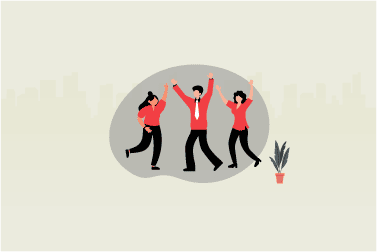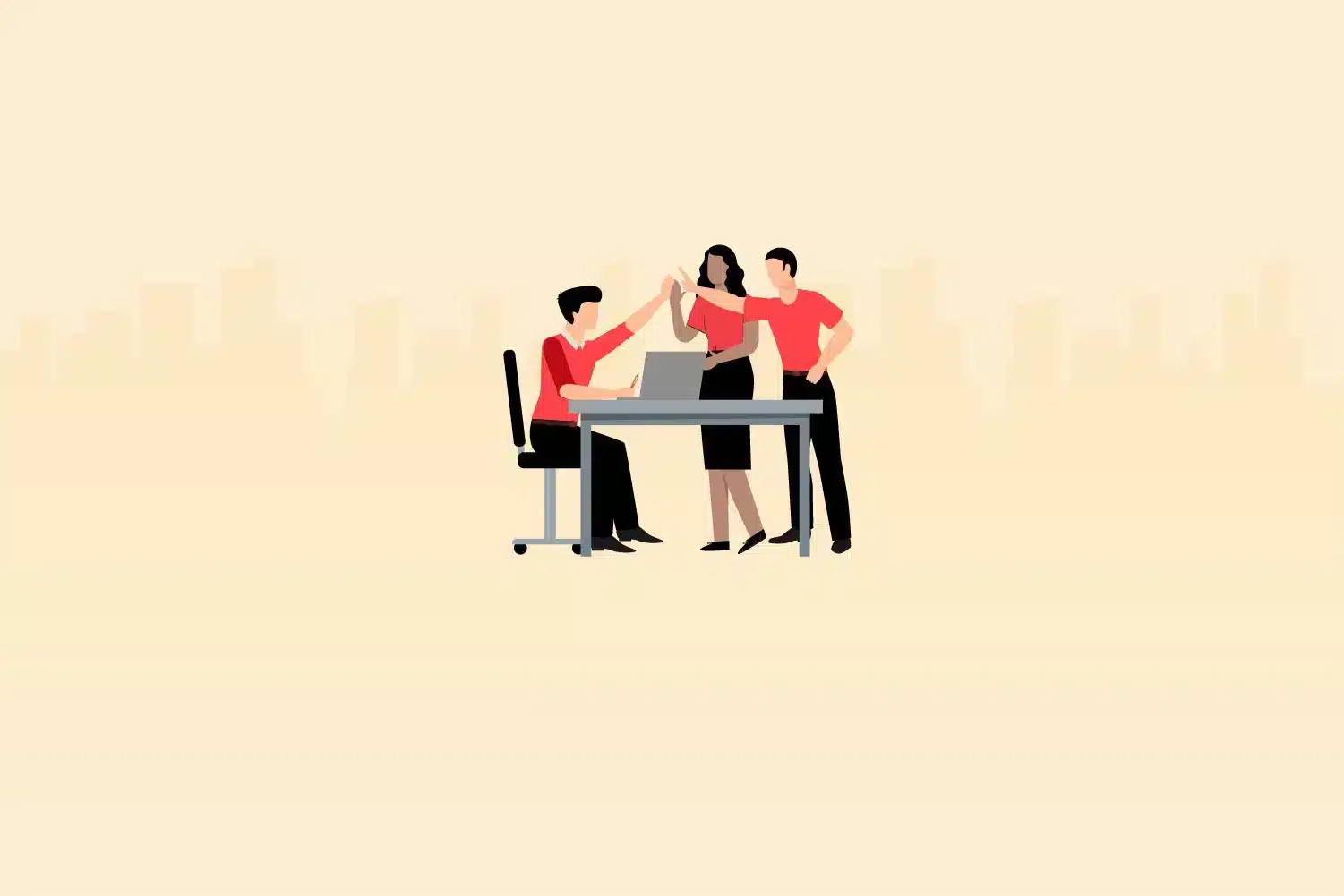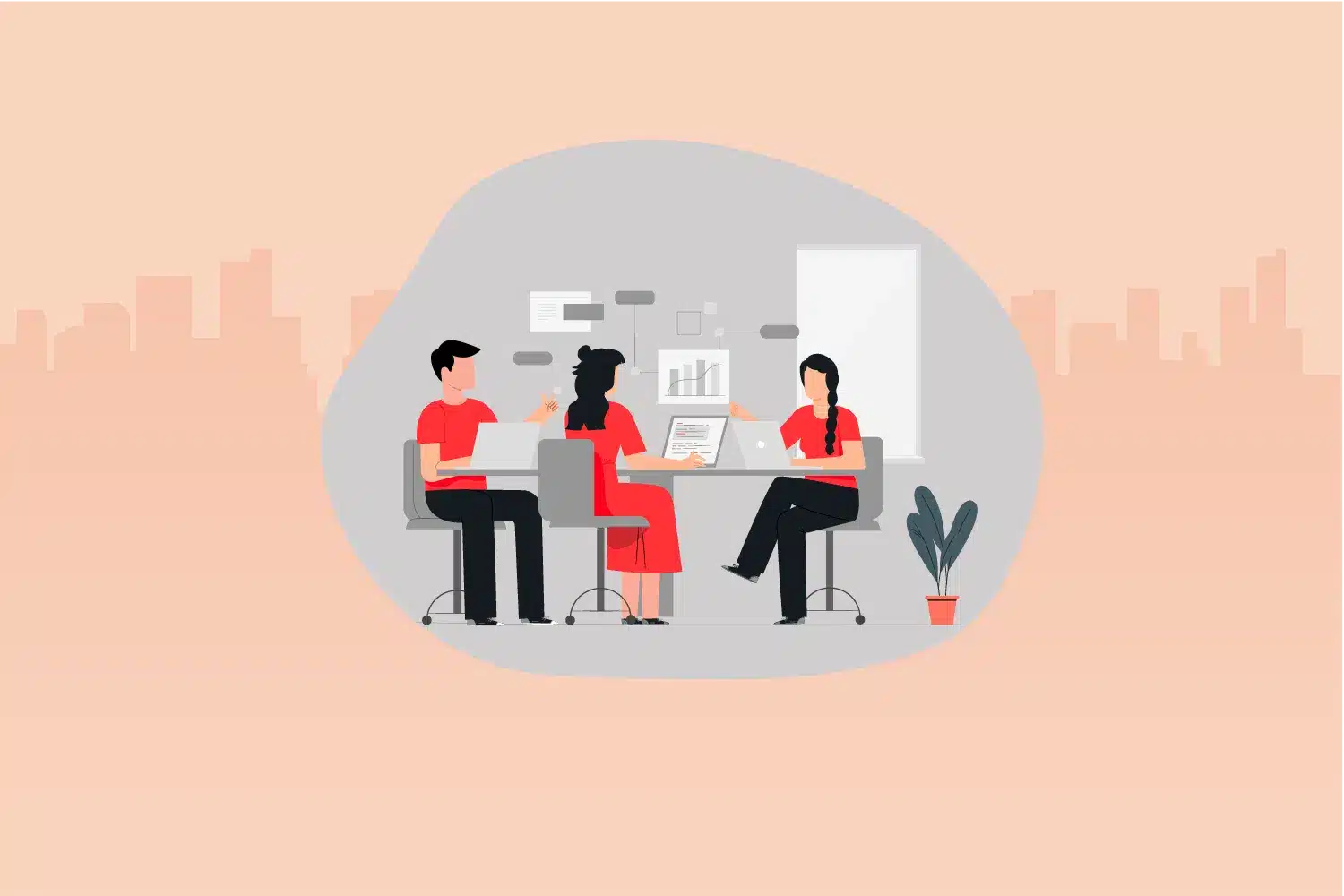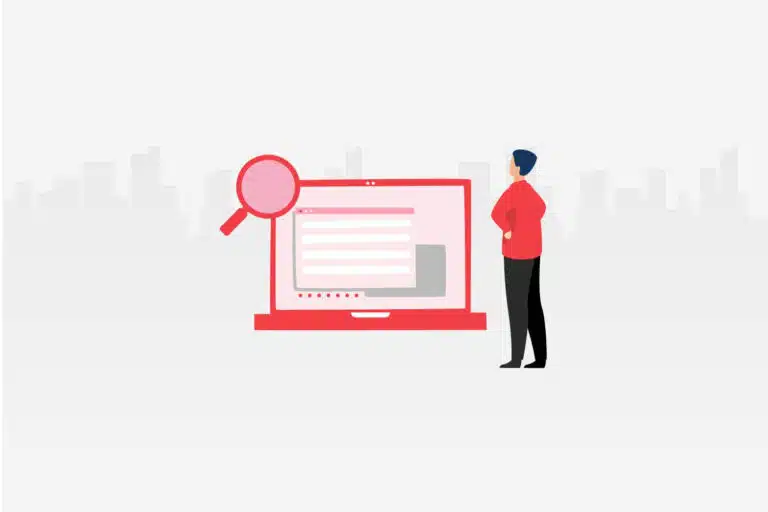The role of the Fundraising Manager has become increasingly vital in today’s competitive fundraising landscape. With organizations seeking innovative ways to secure financial support for their mission, the demand for skilled professionals in this field has surged. According to recent industry analytics, the recruiting trend for Fundraising Managers has seen a remarkable upward trajectory, reflecting the growing recognition of their strategic importance.
As HR professionals and CXOs explore ways to optimize their fundraising efforts, it is essential to identify candidates who possess the necessary expertise, vision, and leadership qualities to navigate this dynamic landscape successfully. In this context, crafting targeted interview questions for Fundraising Managers can play a pivotal role in selecting candidates who can drive sustainable fundraising growth and achieve organizational goals.
Here are the top 60 Fundraising Manager interview questions to ask job applicants:
15 general interview questions for the Fundraising Manager
- Can you describe your experience in developing and implementing successful fundraising strategies?
- How do you identify and cultivate relationships with potential donors or funding sources?
- Can you share an example of a fundraising campaign you led that achieved exceptional results? What strategies did you employ?
- How do you stay updated on current fundraising trends and best practices?
- Tell us about a time when you faced significant challenges in a fundraising campaign. How did you overcome them?
- What metrics do you use to measure the effectiveness of fundraising initiatives? How do you interpret and utilize those metrics to drive improvement?
- Can you discuss your experience with donor stewardship and relationship management? How do you ensure donor retention and engagement?
- How do you approach collaboration and coordination with internal teams, such as marketing and finance, to support fundraising efforts?
- Describe a situation where you had to prioritize competing fundraising projects with limited resources. How did you make decisions and allocate resources effectively?
- What strategies do you use to identify and approach new funding opportunities and diversify the donor base?
- How do you leverage technology and digital platforms to enhance fundraising efforts?
- Can you share an example of a fundraising partnership or collaboration you initiated with external organizations or stakeholders? What was the outcome?
- Describe your experience in organizing fundraising events or campaigns. How do you ensure they align with the organization’s mission and values?
- How do you maintain transparency and accountability in managing funds raised?
- Can you provide an overview of your experience in working with grant applications and managing relationships with grant-making institutions?
5 sample answers to general interview questions for the Fundraising Manager
- Can you describe your experience in developing and implementing successful fundraising strategies?
Look for: A candidate who demonstrates strategic thinking, creativity, and a track record of achieving fundraising goals.
Example answer: “In my previous role as a Fundraising Manager, I developed and implemented a comprehensive fundraising strategy that increased annual donations by 30%. I utilized a multi-channel approach, leveraging online campaigns, targeted donor outreach, and corporate partnerships. By analyzing donor data and trends, I identified new opportunities for engagement and tailored messaging to resonate with different donor segments. Additionally, I established a major gifts program that significantly increased contributions from high-net-worth individuals.”
- How do you identify and cultivate relationships with potential donors or funding sources?
Look for: Strong relationship-building skills, networking abilities, and a strategic approach to donor cultivation.
Example answer: “Building relationships with potential donors is crucial for fundraising success. I actively research and identify individuals, foundations, and corporate entities aligned with our organization’s mission and values. I attend networking events, engage in professional associations, and leverage existing connections to establish meaningful connections. Once identified, I employ personalized cultivation strategies, such as organizing small gatherings, arranging one-on-one meetings, and involving them in our mission-related activities. By building trust and demonstrating the impact of their support, I have successfully converted many prospects into long-term donors.”
- How do you measure the effectiveness of fundraising initiatives and utilize those metrics to drive improvement?
Look for: Analytical skills, data-driven decision-making, and a focus on continuous improvement.
Example answer: “To measure the effectiveness of fundraising initiatives, I track various key performance indicators (KPIs) such as donor acquisition rates, donor retention rates, average gift size, and return on investment. I analyze these metrics regularly to identify trends, areas of improvement, and potential opportunities. For instance, by analyzing donor data, I identified a decline in donor retention rates and implemented a targeted stewardship program that increased retention by 15%. Furthermore, I leverage data to segment donors and tailor communication strategies, resulting in higher engagement and increased giving.”
- How do you approach collaboration and coordination with internal teams, such as marketing and finance, to support fundraising efforts?
Look for: Strong interpersonal skills, cross-functional collaboration abilities, and an understanding of the importance of teamwork.
Example answer: “I firmly believe that successful fundraising requires a collaborative approach. I establish open lines of communication with the marketing and finance teams to align fundraising efforts with broader organizational goals. By collaborating closely with the marketing team, we create compelling campaign materials and messaging that effectively communicate our mission and impact. Additionally, I work closely with the finance team to ensure accurate tracking and reporting of funds raised. Regular meetings shared project management tools, and effective delegation helps us synchronize efforts and maximize outcomes.”
- Describe your experience in organizing fundraising events or campaigns. How do you ensure they align with the organization’s mission and values?
Look for: Event planning and management skills, creativity, and an understanding of the organization’s mission and values.
Example answer: “I have successfully organized various fundraising events and campaigns that have not only raised significant funds but also enhanced the organization’s visibility and strengthened donor relationships. For instance, I orchestrated a gala event that raised over $500,000 while effectively conveying our mission through impactful storytelling and testimonies from program beneficiaries. To ensure alignment with the organization’s mission and values, I establish clear event objectives, involve key stakeholders in the planning process, and conduct thorough research to select vendors and partners who share our values. I also incorporate mission-focused elements into the event program and ensure that all communication materials consistently reflect our organization’s brand and messaging.”
15 behavioral interview questions for a Fundraising Manager
- Tell me about a time when you had to develop a fundraising strategy from scratch. How did you approach it, and what was the outcome?
- Can you describe a situation where you faced significant challenges in meeting fundraising goals? How did you overcome those challenges?
- Give me an example of a successful donor cultivation initiative you led. How did you identify and engage potential donors, and what was the impact?
- Tell me about a time when you had to manage a fundraising campaign with limited resources. How did you prioritize and optimize your approach?
- Describe a situation where you had to navigate a complex donor relationship or negotiate a major gift. How did you handle it, and what was the result?
- Give me an example of a time when you utilized data and analytics to inform your fundraising strategies. How did it impact your decision-making and outcomes?
- Tell me about a fundraising event or campaign you organized. How did you ensure its alignment with the organization’s mission and values, and what were the results?
- Describe a time when you had to work closely with other departments or teams within the organization to achieve fundraising success. How did you collaborate effectively?
- Give me an example of a creative approach you used to engage and inspire donors. What was the idea, and how did it resonate with the target audience?
- Tell me about a time when you faced donor retention challenges. How did you address them and improve donor loyalty?
- Describe a situation where you had to manage multiple fundraising projects simultaneously. How did you prioritize and ensure their successful execution?
- Give me an example of a time when you had to address ethical considerations or potential conflicts of interest in fundraising. How did you handle the situation?
- Tell me about a fundraising campaign or initiative that didn’t go as planned. How did you adapt and learn from the experience?
- Describe a time when you had to leverage technology or digital platforms to enhance your fundraising efforts. What tools or strategies did you use, and what were the outcomes?
- Give me an example of a time when you had to represent your organization in front of potential donors or funding sources. How did you effectively convey your mission and secure their support?
5 sample answers to behavioral interview questions for the Fundraising Manager
- Tell me about a time when you had to develop a fundraising strategy from scratch. How did you approach it, and what was the outcome?
Look for: Strategic thinking, planning skills, adaptability, and measurable outcomes.
Example answer: “In my previous role, I was tasked with developing a fundraising strategy for a new program. I started by conducting thorough research on potential funding sources, analyzing donor demographics, and assessing the competitive landscape. Based on my findings, I created a comprehensive strategy that included targeted direct mail campaigns, corporate sponsorships, and grant applications. By the end of the first year, we secured over $500,000 in funding, surpassing our initial goal by 20%.”
- Give me an example of a successful donor cultivation initiative you led. How did you identify and engage potential donors, and what was the impact?
Look for: Relationship-building skills, strategic donor engagement, and measurable impact.
Example answer: “In a previous position, I identified a group of potential major donors for our organization. I conducted thorough research to understand their philanthropic interests and connected with them through personalized letters and invitations to exclusive events. By cultivating relationships through one-on-one meetings and involving them in our mission-related activities, we were able to secure significant contributions. Over a span of two years, this initiative resulted in over $1 million in donations and strong long-term partnerships.”
- Tell me about a time when you had to manage a fundraising campaign with limited resources. How did you prioritize and optimize your approach?
Look for: Resourcefulness, strategic thinking, prioritization skills, and creativity.
Example answer: “During a challenging year with limited resources, I had to lead a fundraising campaign for a nonprofit organization. To maximize our impact, I prioritized the most cost-effective channels, such as targeted digital marketing and leveraging our existing donor base. I also engaged volunteers to help with outreach efforts, reducing costs while expanding our reach. Despite the constraints, we exceeded our fundraising goal by 15%, demonstrating the power of strategic planning and optimization.”
- Describe a situation where you had to navigate a complex donor relationship or negotiate a major gift. How did you handle it, and what was the result?
Look for: Relationship management skills, negotiation abilities, and measurable outcomes.
Example answer: “In a previous role, I encountered a complex donor relationship where a major gift was at stake. I took the initiative to schedule a face-to-face meeting with the donor to better understand their concerns and motivations. Through active listening and building trust, I was able to address their reservations and align their philanthropic goals with our organization’s mission. As a result, we secured a substantial seven-figure gift that significantly advanced our programs and initiatives.”
- Give me an example of a fundraising event or campaign you organized. How did you ensure its alignment with the organization’s mission and values, and what were the results?
Look for: Event planning skills, mission alignment, creativity, and measurable outcomes.
Example answer: “As a Fundraising Manager, I organized a gala event that aimed to raise funds while showcasing our organization’s impact. To ensure alignment, I incorporated mission-focused elements into the event, such as storytelling from program beneficiaries and interactive displays. Through strategic partnerships and effective marketing, we attracted a diverse audience and exceeded our fundraising target, raising over $300,000. The event not only achieved financial success but also deepened the attendees’ understanding and connection to our mission.”
15 personality interview questions for the Fundraising Manager
- How do you handle rejection or setbacks in the fundraising process? Can you provide an example?
- Describe your approach to building and maintaining relationships with donors. How do you ensure strong connections and donor loyalty?
- How do you stay motivated and keep your team motivated during challenging fundraising periods?
- Can you share an example of a time when you had to think creatively to overcome a fundraising obstacle or find a unique solution?
- How do you balance the need for immediate fundraising results with long-term relationship building and sustainability?
- Describe your communication style when interacting with potential donors or funding sources. How do you tailor your approach to different individuals or organizations?
- How do you handle competing priorities and manage your time effectively in a fast-paced fundraising environment?
- Can you discuss your experience in leading and motivating a team of fundraising professionals? How do you foster a collaborative and high-performing team culture?
- Describe your approach to risk-taking in fundraising. How do you evaluate and mitigate potential risks while pursuing opportunities?
- How do you ensure transparency and accountability in managing funds raised? Can you share an example of how you’ve implemented effective financial stewardship practices?
- Can you describe a time when you had to make a difficult ethical decision in fundraising? How did you navigate it, and what was the outcome?
- How do you stay updated on the latest fundraising trends, tools, and best practices? Can you provide an example of how you’ve implemented innovative strategies in your work?
- Describe your leadership style and how it aligns with your approach to fundraising. How do you inspire and empower your team to achieve fundraising goals?
- How do you handle stress and pressure in high-stakes fundraising situations? Can you provide an example of how you maintained composure and achieved success?
- Can you share an example of a time when you had to adapt your fundraising strategies to a changing external environment or donor landscape? How did you approach the situation, and what were the outcomes?
5 sample answers to personality interview questions for Fundraising Manager
- How do you handle rejection or setbacks in the fundraising process? Can you provide an example?
Look for: Resilience, persistence, and the ability to learn from setbacks.
Example answer: “In the fundraising process, rejection and setbacks are inevitable. When faced with such challenges, I view them as learning opportunities rather than personal failures. For instance, during a major gift solicitation, I faced a significant rejection from a potential donor. Instead of being discouraged, I took the opportunity to reflect on the interaction, gather feedback, and refine my approach. I then reached out to the donor again with a revised proposal, addressing their concerns. This persistence paid off, as the donor eventually became one of our most generous supporters.”
- How do you balance the need for immediate fundraising results with long-term relationship building and sustainability?
Look for: Strategic thinking, a relationship-oriented approach, and a focus on both short-term and long-term goals.
Example answer: “While immediate fundraising results are important, I strongly believe in the value of building and maintaining long-term relationships with donors. I approach this balance by diversifying our fundraising strategies. I allocate resources to targeted campaigns that yield immediate results while simultaneously investing in donor cultivation efforts that focus on relationship-building and long-term sustainability. By striking this balance, I have seen consistent short-term fundraising success while fostering a loyal donor base that continues to contribute to our organization’s mission year after year.”
- How do you handle stress and pressure in high-stakes fundraising situations? Can you provide an example of how you maintained composure and achieved success?
Look for: Ability to handle pressure, composure, problem-solving skills, and the ability to achieve results in high-stress situations.
Example answer: “In high-stakes fundraising situations, remaining calm and focused is crucial. One example of such a situation was when we had a short timeframe to secure funding for an urgent project. The pressure was intense, but I leveraged my problem-solving skills and prioritized tasks to streamline the process. I communicated transparently with our team, set clear goals, and delegated responsibilities effectively. By staying composed, maintaining open lines of communication, and tapping into our network of supporters, we secured the necessary funds just in time to initiate the project.”
- Can you describe your approach to building and maintaining relationships with donors? How do you ensure strong connections and donor loyalty?
Look for: Relationship-building skills, a donor-centric mindset, communication abilities, and a strategic approach to donor engagement.
Example answer: “Building and maintaining strong donor relationships is at the core of successful fundraising. I take a donor-centric approach by actively listening to their needs, preferences, and philanthropic goals. I personalize communications and interactions to ensure they feel valued and connected to our mission. Additionally, I consistently update donors on the impact of their contributions, providing regular reports, newsletters, and opportunities to engage with our organization. By creating a sense of partnership and showing genuine appreciation, I have been able to foster strong donor loyalty and secure long-term support.”
- How do you stay updated on the latest fundraising trends, tools, and best practices? Can you provide an example of how you’ve implemented innovative strategies in your work?
Look for: Continuous learning mindset, adaptability, and a proactive approach to staying informed about fundraising trends.
Example answer: “I believe in the importance of staying updated on the latest fundraising trends and best practices. To achieve this, I regularly attend industry conferences, participate in webinars, and engage in professional networks. I also subscribe to relevant publications and follow thought leaders in the field. An example of implementing innovative strategies was when I integrated social media fundraising campaigns into our traditional fundraising efforts. By leveraging online platforms and utilizing compelling storytelling, we were able to tap into a broader donor base and raise significant funds for a specific project.”
When should you use skill assessments in your hiring process for Fundraising Manager?
Skill assessments can be valuable additions to the hiring process for Fundraising Managers. These assessments provide objective measures of a candidate’s abilities and help ensure that they possess the necessary skills to excel in the role. Assessments are particularly useful for evaluating technical fundraising skills, such as proposal writing, donor cultivation, campaign planning, and data analysis.
By incorporating skill assessments, employers can make more informed hiring decisions, reduce bias, and increase the likelihood of finding candidates who are well-suited for the position. These assessments provide a standardized way to evaluate candidates’ capabilities, allowing for a fair and objective comparison of their skills and competencies.
Some assessments that can be used to evaluate fundraising skills include:
- Case Studies
Candidates are presented with hypothetical scenarios or real-world examples and are asked to develop fundraising strategies, propose solutions to challenges, or analyze data to make informed decisions. Does this assessment provide insight into a candidate’s problem-solving abilities and their understanding of fundraising principles.
- Writing Samples
Requesting writing samples, such as grant proposals or donor communications, allows employers to assess a candidate’s ability to effectively convey their message, demonstrate persuasive writing skills, and adhere to the guidelines and best practices of fundraising writing.
- Data Analysis Exercises
Candidates may be given datasets related to fundraising campaigns, donor behavior, or financial reports. They are then asked to analyze the data, draw insights, and make recommendations based on their findings. This assessment measures a candidate’s ability to interpret and leverage data for informed decision-making.
- Role-Play or Mock Fundraising Scenarios
Employers can simulate fundraising situations and observe how candidates respond. This assessment evaluates a candidate’s interpersonal skills, relationship-building capabilities, and their ability to handle donor interactions.
By using skill assessments tailored to the specific requirements of the fundraising role, employers can gain deeper insights into a candidate’s abilities, beyond what may be conveyed through resumes and interviews. These assessments provide a more comprehensive evaluation and increase the likelihood of selecting the most qualified candidate for the Fundraising Manager position.
Use our interview questions and skill tests to hire a talented Fundraising Manager
Unlock the potential of your hiring process with Testlify’s comprehensive skill assessments and interview questions specifically designed for Fundraising Managers.
Our extensive test library offers a wide range of assessments, including cognitive function, personality, situational judgment, programming, and more. By leveraging these assessments, you can objectively evaluate candidates’ abilities, ensuring you shortlist the most talented individuals efficiently.
To further enhance your hiring process, we invite you to book a free 30-minute live demo. Our expert team will guide you through the platform, showcasing relevant skill tests tailored to your hiring needs. With our support, you can streamline candidate selection, saving valuable time and resources.
Ready to find the perfect fit for your Fundraising Manager role? Testlify provides the tools you need to make informed hiring decisions. Explore our skill assessments and interview questions today to uncover exceptional talent for your team.








